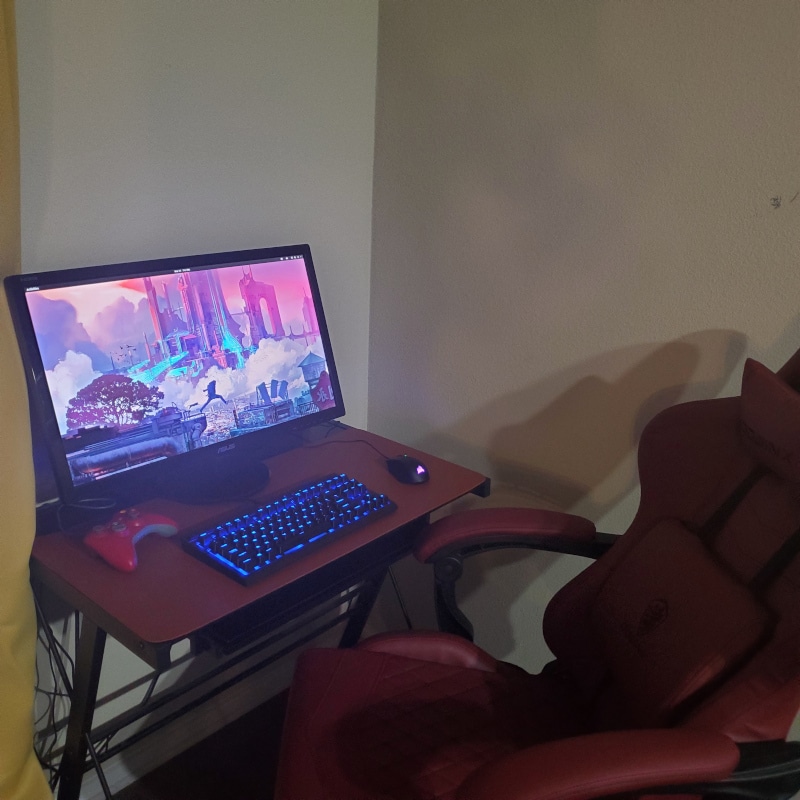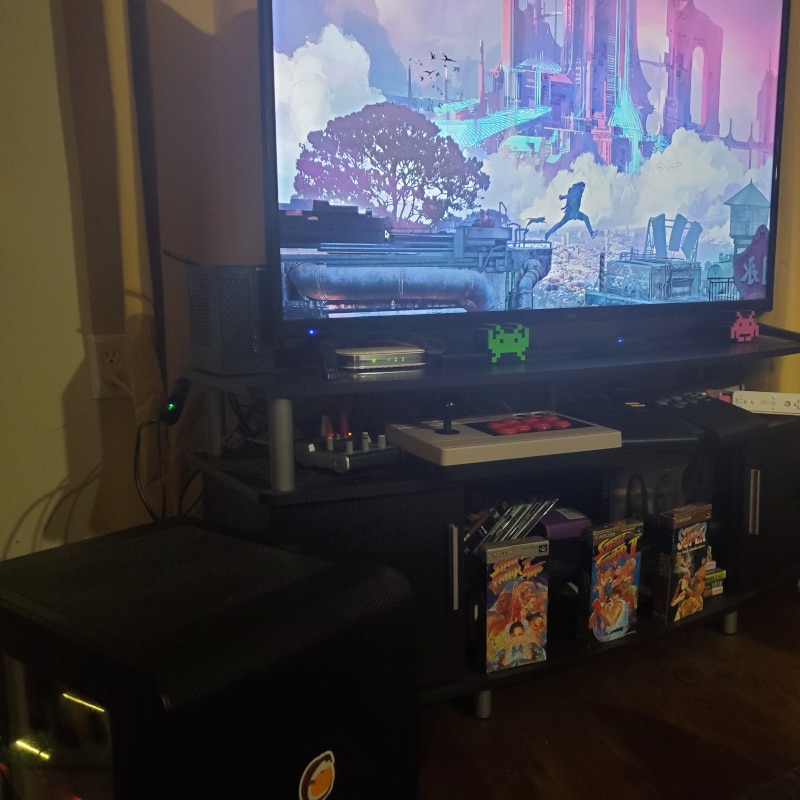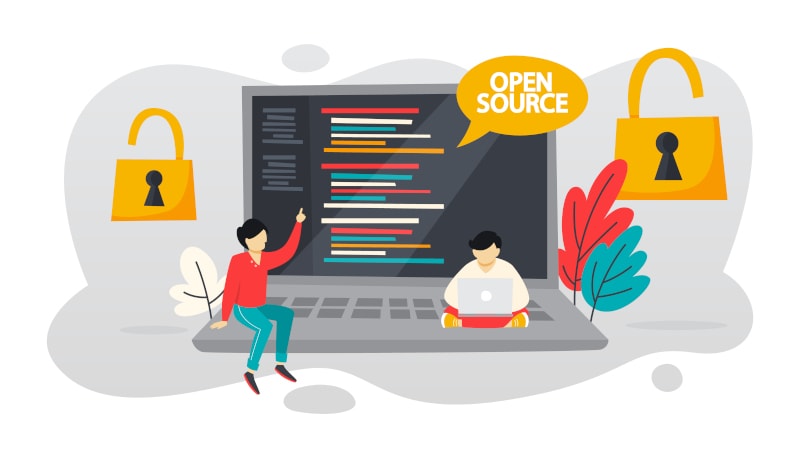
If you’re someone who prefers to play games on a Linux system, you probably already know about the open gaming platform Lutris.
We have mentioned it in our Linux Gaming Guide. We are not the only one. Anthony from Linus Tech Tips also mentioned it as a useful game manager to help you run titles that aren’t supported/available in Steam.
Considering that the Linux Gaming scene is improving every day, Lutris as a tool is definitely playing a significant role.
I reached out to the creator of Lutris – Mathieu Comandon to talk about the state of Linux gaming and the future of Lutris and you may find some interesting insights from some of his responses to my questions.
I’ve included the conversation below for you to read. Also, thank you, Mathieu, for your time for this interview!
Interview With The Creator of Lutris: Mathieu Comandon
Here, we discuss the future of Lutris, the state of Linux gaming, and some personal insights to Mathieu’s life, and he also has a message for our readers.
How and when did it all start? What inspired you to create Lutris?

Mathieu: I was interested in video games before getting my first computer. When I switched completely to Linux around 2005, I still wanted to play games. This demanded a lot more effort than running games on Windows. The tutorials to get emulators or game engines up and running wouldn’t always be clear or would often become outdated. I wanted to have something to take care of the setup of games and organize various programs capable of running them in a single UI.
Considering the userbase of Linux Gamers, do you get enough support to cover your expenses? Are there any plans to monetize the project?
Mathieu: I do have enough financial support from the donations! And by choosing the right hosting solutions, the project isn’t that expensive to maintain. Just switching our Wine builds from our Digital Ocean CDN to our Github release page helped save Terabytes of traffic! Even with the hosting costs taken out, it still leaves me with enough to be able to keep a part-time contract instead of a full-time job.
I don’t have plans to monetize the project outside of the current donation system for the moment. I like the idea of keeping the project independent from any entity. We might setup some affiliate links with other platforms but that’s as far I would personally take it.
From the beginning of the project to date, how do you see the state of Linux gaming? Has it improved or declined?
Mathieu: The overall progress Linux has made in terms of gaming is simply incredible! It used to be very complicated and the performance would be very poor. But everything has improved, graphics drivers, sound APIs, compatibility layer like Wine. Vulkan was an absolute game changer, and Valve too…
Do you see the rise of Steam’s Proton a threat for the existence for Lutris?
Mathieu: Quite the opposite actually! Without Proton and Steam Play, I’m not sure Lutris would be where it is today. DXVK would still exist and probably VKD3D too but I don’t think we would have such a good experience as what we have today. Valve shares the same goal as Lutris: to make games run on Linux.
Being a large entity, Valve has been able to sync together multiple projects like Mesa, Wine, DXVK and make them focus on the gaming aspect of Linux. This is something Lutris is too small to do. I see more of a threat in Stadia, which takes away the possibility of running your games on your own devices. The platform is allegedly powered by Linux and Vulkan but I haven’t noticed Google greatly improving the Linux ecosystem like Valve did.
I still see a use case for streaming services but a service like GeForce Now will let you play your existing Steam, Epic or GOG libraries. For the same reasons, I’m not a fan of services like Spotify or Netflix. I like being able to curate my media libraries and not be dependent on an online provider’s offerings.
Lutris is quite popular now considering that we also recommend it in our “Linux Gaming Guide”, what do you have in mind for the future of Lutris? Any sneak peek on upcoming features?

Mathieu: For the 0.5.x, I’d like to focus on providing more integrations like we did for GOG and Humble Bundle. GOG Galaxy has a similar system of integrations for 3rd party services so everything that has an existing GOG integration has the potential to have one in Lutris too. This includes Epic Games Store, Battle.net, Ubisoft Connect, Origin… and also emulators like MAME or Dolphin.
Since Lutris has now entered the Debian repositories (and subsequently Ubuntu), I’d like to focus on cleaning our code base and improving the overall stability. Lutris is over 10 years old and still has a lot of code I wrote when I was just learning Python!
I’d really like to start the 0.6 cycle on a clean code base. Then, I want to add a controller friendly fullscreen UI, maybe made with Godot.
I have another project in mind but it’s still a very rough draft and is nowhere near having any kind of prototype. I call it Nostromo Bridge and it would be a way to expose system resources to a game like displays, sound cards, controllers that are a subset, or something completely different from what the hardware resources are. This would allow handling things like multi-monitor support, fullscreen scaling, controller remapping in a Wayland context. A lot similar things have been done with Steam Big Picture, Wine or SC Controller so I think it’s technically feasible.
Do you have any interesting stats to share (like what games most users play, on what platform, etc)
Mathieu: I haven’t got a lot of stats to share, sadly! We have a popularity field in our database but we haven’t updated it since it used to DDOS the website with the Lutris clients each time a mass update was performed!! The project is going more in a direction were users manage their libraries locally and would optionally upload it to Lutris. The latest version of the client allows to install GOG and Humble Bundle games even if they aren’t in our database. It’s also one of Lutris’ goals to have as little tracking as possible.
I know there’s a lot of people playing World of Warcraft, League of Legends, Magic: The Gathering but a reason I hear about those is because they receive frequent updates that sometime break Linux compatibility…
Let’s ask some personal questions. What kind of games do you prefer to play?

Mathieu: I play mostly arcade / action games and FPS games. Since there are so many games available, I don’t play games that require a large time investment. Or I should say, I don’t anymore… I’ve spent a considerable of time in Minecraft, Terraria or Stardew Valley in the past.
With the advances in Linux gaming, I really feel like almost every game ever made is now available. I’ve started installing the entirety of my GOG and Humble Bundle libraries on my gaming machine, which leads me to find some really interesting gems like Seasons after Fall, Frog Detective, Ys Origin, Nox… I’ve also started playing a lot more fighting games, I love those but was never really great at them… so I’m currently practicing a lot. I now have every Street Fighter game ever released on my Lutris console!
Some really great games I’ve played recently or am playing: Doom Eternal, Horizon Zero Dawn, Bloostained and Carrion
Other than tinkering with your computer, what do you like to do in your free time?

Mathieu: I like cooking and discovering new dishes. I also enjoy walking around the city or in the nature, shooting pictures of birds. I’m also having some fun replanting various seeds I get from my groceries.
I’m also a big music fan and recently started learning about the production aspect, but that goes back to tinkering with computers 🙂
What are some ‘open source’ projects that fascinate you?

Mathieu: Blender, for sure! It has become a standard in the movie industry and is capable of amazing results! In general, I really enjoy seeing creative open source tools getting better, Krita and Ardour have become so good! And now with Godot, we have an excellent game engine, completely open source. There is now a complete tool chain to make games on Linux, from sound design to 3D modeling and coding.
Linux itself is also fascinating. The same kernel powers my workstation, laptop, game console, servers and every device can communicate with each other through simple means.
What message do you want to give our readers who’re passionate about gaming in Linux or want to contribute to your project? How can they support you to make Linux a top-tier gaming platform?

Mathieu: First, a big thank you to everyone how has helped reaching where we are today! In many ways, I feel that Linux has already become a top-tier gaming platform! But there’s still a lot that can be improved. I would like to get some major features of Lutris 0.5.9 done in the next few weeks. Thus doesn’t leave a lot of room for incorporating patches for unplanned features… Development help for planned features would be greatly appreciated. I would like to be able to discuss how patches will be implemented before any code is written. We have a Discord server where such things can be discussed.
I would encourage the community to be curious about coding and take advantage of the availability of the source. Not only for Lutris or gaming, but as a general attitude when using Linux. I often hear “I’m not a programmer”, but I wasn’t really a programmer when I started Lutris, not professionally, at least. Taking advantage of open source is what eventually made me a programmer.
Closing Thoughts
Lutris is a fantastic project that has helped the Linux community to easily experience the games they couldn’t (without going through a hurdle of issues) and considering the insights Mathieu gave us here, it also has a promising future to make more games work on Linux in the coming years.
You can explore more about Lutris in their official website and their GitHub page.
- Even the biggest players in the Linux world don't care about desktop Linux users. We do.
- We don't put informational content behind paywall. Your support keeps it open for everyone. Think of it like 'pay it forward'.
- Don't like ads? With the Plus membership, you get an ad-free reading experience.
- When millions of AI-generated content is being published daily, you read and learn from real human Linux users.
- It costs just $2 a month, less than the cost of your favorite burger.
Become a Plus Member today and join over 300 people in supporting our work.









